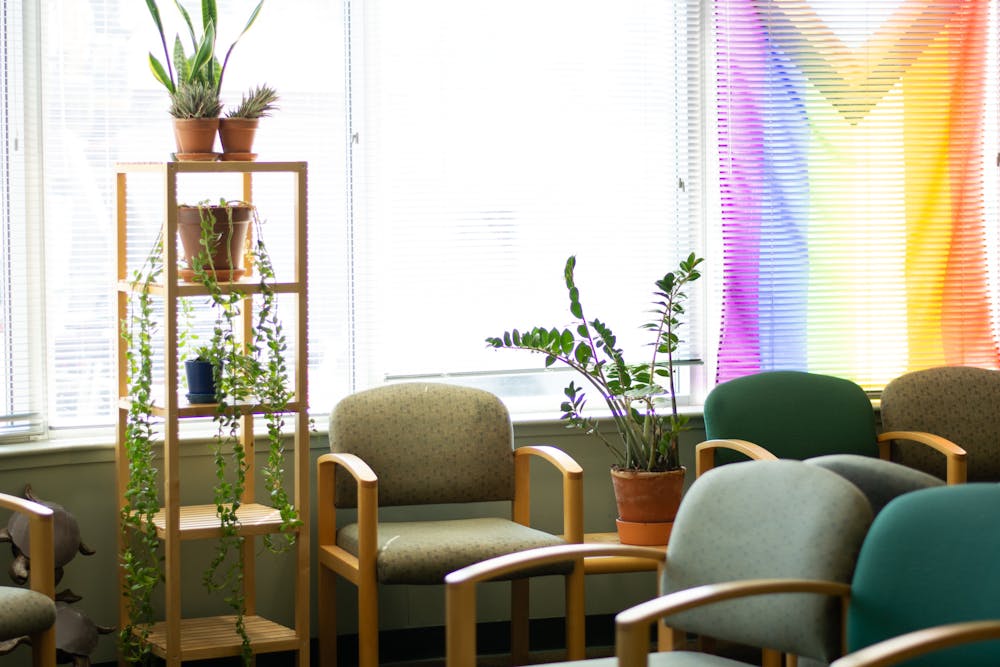For years, LGBTQ+ students have been asking for more support and resources by the University. Now, they can anticipate some of those requests with the opening of a Gender and Sexuality Center (GSC) in Orrico Hall in the fall of 2024.
The center is planned to be in the bottom level of Orrico Hall and will have a staff member to support and occupy the center. According to the Director of Student Activities Jeromy Koffler, this position will most likely be filled by an Assistant Hall Director.
For Koffler, opening a center like this is a crucial step to making students feel more included on campus.
“We needed to do something, and we're taking some action by working with the students themselves so that they feel like they have a voice in the process,” Koffler said.
The action is in response to a survey conducted by Koffler and Associate Vice President for Student Development Tammy Herdener, along with the help of the Gender Sexuality Partnership (GSP) club, as a part of an 18-month fellowship program through Northwest Commision on Colleges and Universities (NWCCU, a higher education accreditation organization.
The survey, which aims to understand the LGBTQ+ student experience at UP, found peer support, University-sponsored events and visible symbols and public awareness of queer culture are among the most impactful for students’ sense of belonging on campus, according to the survey.
“We were supposed to pick an institutional challenge to base our study on,” Herdener said. “We decided that it would be best to do sense of belonging among the LGBTQ+ student population because we felt like there were a lot of campus partners that were doing things to have resources for LGBTQ+ students, events — but it was so decentralized.”
As a result of the survey, the University is considering a combination of short-term and long-term steps, in addition to the Gender and Sexuality Center, to improve the sense of belonging among the LGBTQ+ student population. This includes training plans, reporting and responding to bias-related incidents, establishing an advisory council on belonging and inclusion and developing a positive intersection between the University’s Catholic identity and its LGBTQ+ student population.
While the timeline for opening the Gender and Sexuality center is more linear, other goals highlighted in the survey aren’t moving as fast, according to Koffler.
“Some of the things are just moving forward because we've been able to identify resources and things like that,” Koffler siad. “In good faith, I think things are moving forward. But I don't think they're all moving forward at the same pace.”
For GSP Vice President Jesper Machi, the survey conducted by Koffler and Hernder, as well as the opening of the center, is a step in the right direction in amending the relationship between administration and the LGBTQ+ community at UP.
“What they [Herdener and Koffler] presented to GSP, it was clear that they put in like a lot of work,” Machi said. “I feel like I want people to know about that because they found how students were feeling and they have very tangible next steps. I feel like students kind of have this idea that they're fighting back against administration, but administration can really do good things like this.”
Koffler and Herdener spent more than a year reviewing studies on belonging, retention, persistence and the Catholic identity and LGBTQ+ student experiences on college campuses before creating the survey.
They also made site visits to the University of San Francisco and Gonzaga University’s Lincoln LGBTQ+ Resource Center to inform their research, attempting to understand how other schools mirroring UP’s size and demographics are developing a sense of belonging on their campuses.
“We met with Campus Ministry at Gonzaga to just learn more about that interconnection of LGBTQ+ [community] and Catholicism and how they do that work,” Herderner said.
They also looked at institutional data including the 2019 and 2022 Campus Climate Survey given to first-year students, DEIJ focus groups, the Dr. Elizabeth Ortiz DEIJ report and recommendations, Shepherd Academic Resource Center exit interviews and past Beacon articles — specifically commentaries about LGBTQ+ acceptance at UP.
GSP worked with Koffler and Herdener on distributing the survey, but also in developing the survey itself.
“They [GSP] definitely were part of the development of this survey,” Koffler said. “Because this is an identity-based study, I think it's important that we position ourselves as researchers within the community and have the trust, respect and support of the community to do the work. So we worked with GSP very closely to help them understand what we were trying to do.”
Now that actionable steps are in place, Koffler thinks students will be the ones to decide whether these changes are impactful to them.
“In all humility, I think it's going to be something that you're going to want to ask the students who are being served because we can set it up and do everything we can to make it successful, but the students who are actually being served are going to tell us ‘this is working for us’ or ‘this is great’ or ‘this isn't,’” Koffler said. “We're going to listen to them and we're really going to work with them to make it successful.”
Kimberly Cortez is the Diversity, Equity & Inclusion Editor for The Beacon. They can be reached at cortez25@up.edu.








